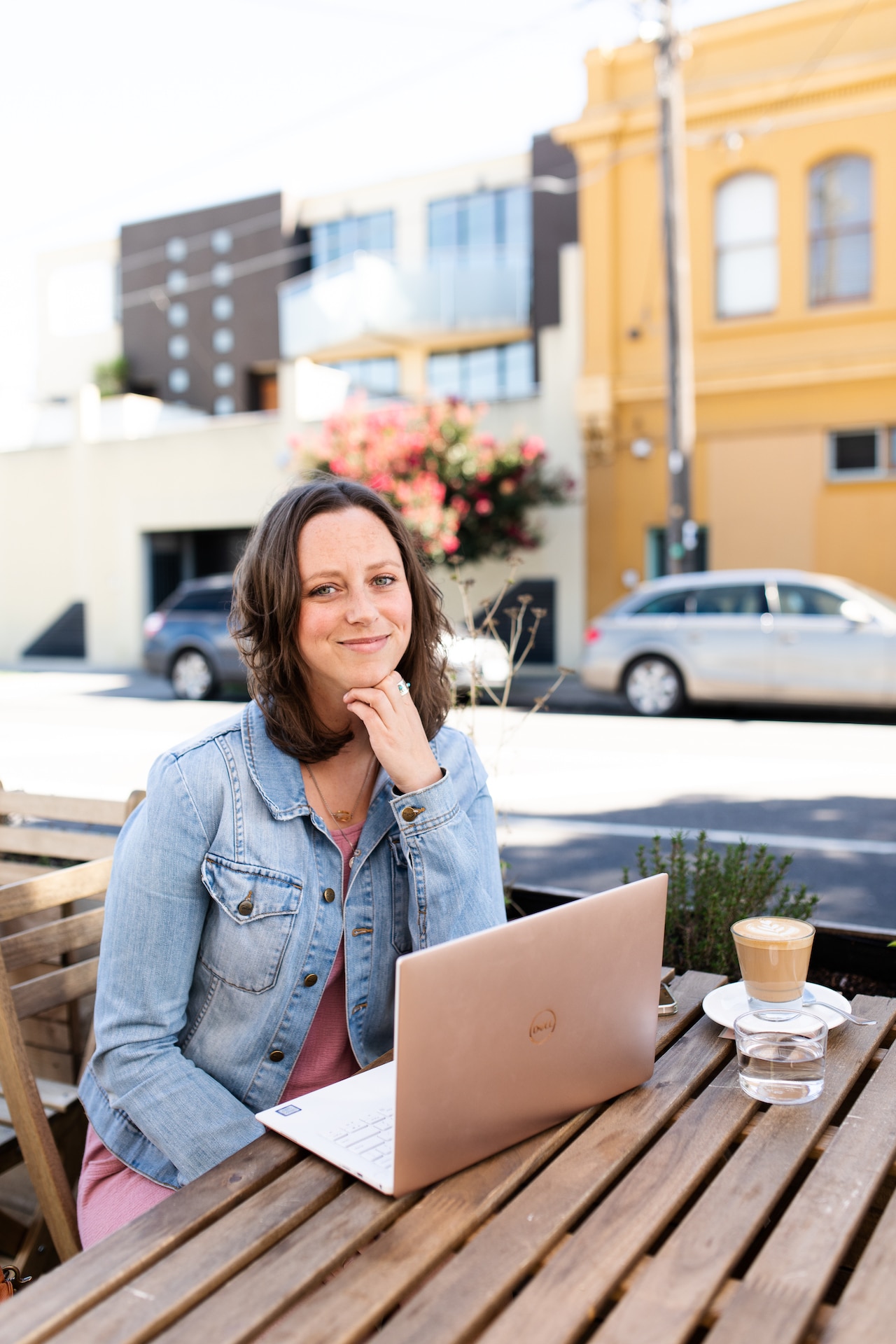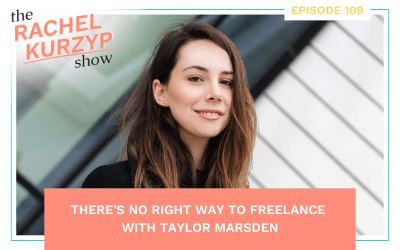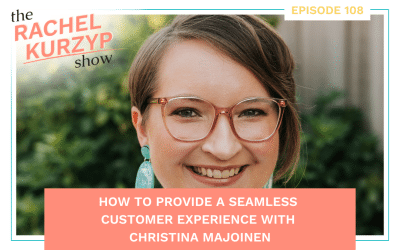It only takes a few seconds on Instagram to feel like your life is a joke compared to everyone else. Seeing people doing yoga poses in their active wear on top of a mountain or rubbing shoulders with “celebrities” at invite-only events is the reason why I quit Instagram nearly two years ago. And don’t even get me started on the recent “my office for the day” fad.
Chasing the elusive 6-figure salary and more importantly, the supposed lifestyle that comes with, is the reason why most of us are walking around miserable with our lives and unsatisfied with what we already have. But more money doesn’t necessarily equal greater happiness and an inspired lifestyle.
Before I walked away from my regular paying gig I was depressed. And overweight. I couldn’t go a week without a crippling migraine. I spent all my money trying to make myself feel better: magazines, chocolate, coffee, a gym membership (that I hardly used), flowers, t-shirts, bags and Tupperware containers (damn you Ikea). You name it, I bought it. I had more disposable income than I had ever had before but I was wasting it on absolute crap.
And even if I wanted to spend my paycheck on something of value– travel, training or networking events – I didn’t have any time. I was chained to my desk all week. That was until I quit my job to start my own business, then things flipped. I finally had all the time in the world but no money.
I started off like most new business owners do, I didn’t spend a dollar. I sat at home every day and did nothing. I checked my account balance at the end of every week and agonised over my purchases and keep telling myself I had to cut costs. I told myself that drinking instant coffee with day-old milk was worth the $3.50 I had saved. After three months I was lonely, stressed and just as miserable as I had been working at my day job. What was I doing wrong?
I don’t know how it happened (society I’m looking at you) but I was under the illusion that I needed to have bags of money stashed under my bed to live the life I wanted. I didn’t grow up with this belief, in fact, I grew up thinking the exact opposite. When I was a teenager I used to get $5 pocket money a week and I’d use it to buy a return bus ticket into the city to see my friends for lunch on Saturdays. I’d even come home with change!
When I was at university and working part-time, most of my money went on rent, bills and food. I would have $40 spare each week if I was lucky. But I still managed to go on road trips, see bands, buy on-trend clothes and get a slice (or two) of pizza on the way home from a massive night out. And when I was living in London I managed to go on four-day trips to cities across Europe once or twice a month, all funded by my marketing assistant job. Looking back I honestly don’t know how I did it. But there I was living the life I wanted without a massive paycheck. So how did I do it?
I wish I could tell you that you only need to do one thing that you only need to change one aspect of your life but I can’t. In reality, it’s a whole bunch of little things that together make a big, noticeable change (ka-ching) in your life.
Here’s how I afford to live the life I want without a 6-figure salary
Borrow, lend and trade
I read a lot, and I can smash through a pile of books and magazines in a few days. Reading is one of my favourite things to do, so much so, I factor having magazine subscriptions and buying books into my monthly expenses. And while I won’t stop feeding my addiction, I have found ways to reduce its impact on my bank account.
I buy yearly or two-yearly magazine subscriptions, I sell my used books to bookstores and use the funds to buy more, I lend and borrow books and magazines from friends, and I’ve embraced the good old fashioned library card. (Do you know you can read Marie Claire and Yen for free through the library?)
I also take the same approach when it comes to clothing, equipment, tools and other random household items. I go camping once a year if I’m lucky, so I don’t own camping equipment. I borrow it from friends and family. Same goes for heels to wear to a wedding or pressure cooker for a dinner party, and I always return the favour.
Before I buy anything I always ask myself, “Will I only use this once? And if so can I borrow it?”
Plan in advance
Being super organised and being able to plan in advance saves you so much money! I book all my overseas trips at least eight months in advance, if not a year. I do this so I can be flexible on dates and book the cheapest fares on the cheapest days (Thursday and Monday are great days to fly). I also try and stay in the same hotel or Airbnb for a week or more so get I can get “long stay” discounts, which can be anywhere between 5-20% off the total accommodation price. Occasionally, I’ll book a trip on a whim but only if there’s a great sale on.
I do the same for tickets to see musicals, talk-shows and events. Not only do I get to enjoy early bird discounts, I often get to choose the best seats and enjoy other incentives for booking early like show bags.
At the start of the year, I make a list of everything I want to see and do, and which countries I’d like to visit. Then I find the best options and book them.
Shop around and pay for quality
I normally only shop when a store is having a sale. If I need new shoes or clothes, I always purchased them at the end of the season when most items are at least 50% off. Yes, that means I don’t often walk around with “on-trend” items, but that suits me fine because I’m not a fan of branded or trendy clothes anyway.
I even set up alerts for products online, and when they go on sale I get an email to let me know. There’s no way I’m paying full price for a toaster or towels. This does mean that sometimes I buy things in bulk (like a cupboard full of toilet paper kinda bulk) to save money. But I only do this if it’s an everyday item that I know I’ll use.
When I was younger I didn’t have much money so I couldn’t buy quality products that would last. My Rubi shoes needed to be replaced every few months if I was lucky and my Primark tops would only last a few weeks before they got holes in them. Now, I save up and only buy products that will last a year, minimum, and I take good care of them. (Putting leather protector on your bags and shoes will make them last for years, go figure!).
I save hundreds of dollars a year now because I always think “is this going to last?” before I make a purchase.
Swap services and skills
If you’re low on cash but need something, why not see if you can help someone out and in return, they help you? This isn’t the same as doing work for free because you’re getting a product or service of equal value in return, it’s just money isn’t being exchanged.
I’ve done this a few times now with varying degrees of success, and I have an ongoing relationship with one client where I get personal training sessions in exchange for marketing and business advice. I’ve swapped copywriting advice for interview advice and built websites in exchange for professional headshots.
You’ll be surprised the events you can attend, the places you can visit and the products you can try in exchange for your time, advice or services if you’re willing to ask.
Apply for discounts and giveaways
In the last year, I’ve won tickets to the Opera, movies and various events, and all I did is enter in a few giveaways. (I’ve won tickets to 90% of the giveaways I’ve entered.) I never used to enter because I thought it was a waste of time or they would take my contact details and spam me but this has never happened.
I felt the same about applying for discounts, too. But the five minutes it takes me to apply or ask if there is a small business discount is worth the hundreds of dollars I’ve saved. What’s the worst that can happen? They say no and you pay the full price. No one gets hurt.
But imagine if they say yes. You still get to do the “thing” but you can put the money you saved into your next adventure.
DIY at home
You can get sliced up carrot and avocado in a tube now at the supermarket. Now, I know you’re busy but devoting a few minutes a day to slice your own fruit and veg will save you bags of money a year. Also, think about investing in a water bottle because do you really want to be spending $20 a week on water? Not only is it healthier, but making meals at home from scratch – from stir fry sauces to a ham sandwich – will save you money.
I found I didn’t have time to grab food between meetings so I’d buy expensive snack food on the go. Then when it would come time to go out with friends I’d stress about spending even more money on eating out. I got my shit together and started making protein balls so I could take them in my handbag and eat them on the tram. I also started buying yummy food that I could quickly throw together at home so I didn’t get the urge to stare at my open fridge and cupboards and complain I don’t have time to make something.
The hundreds of dollars a month (yes, that’s how much you can save people) I saved on lunches and takeaways has allowed me to splurge on expensive wine and cocktails and go out to dinner with friends without breaking into a sweat when the bill arrives.
Featured image from Pexels.





